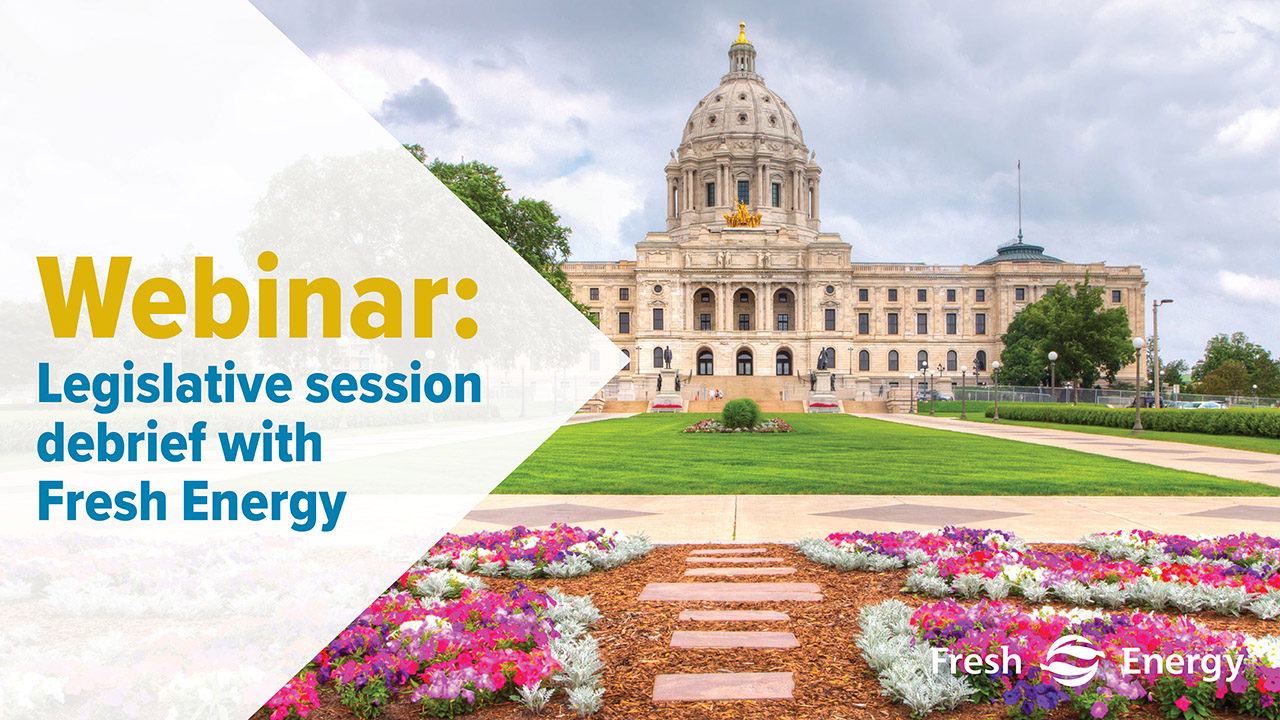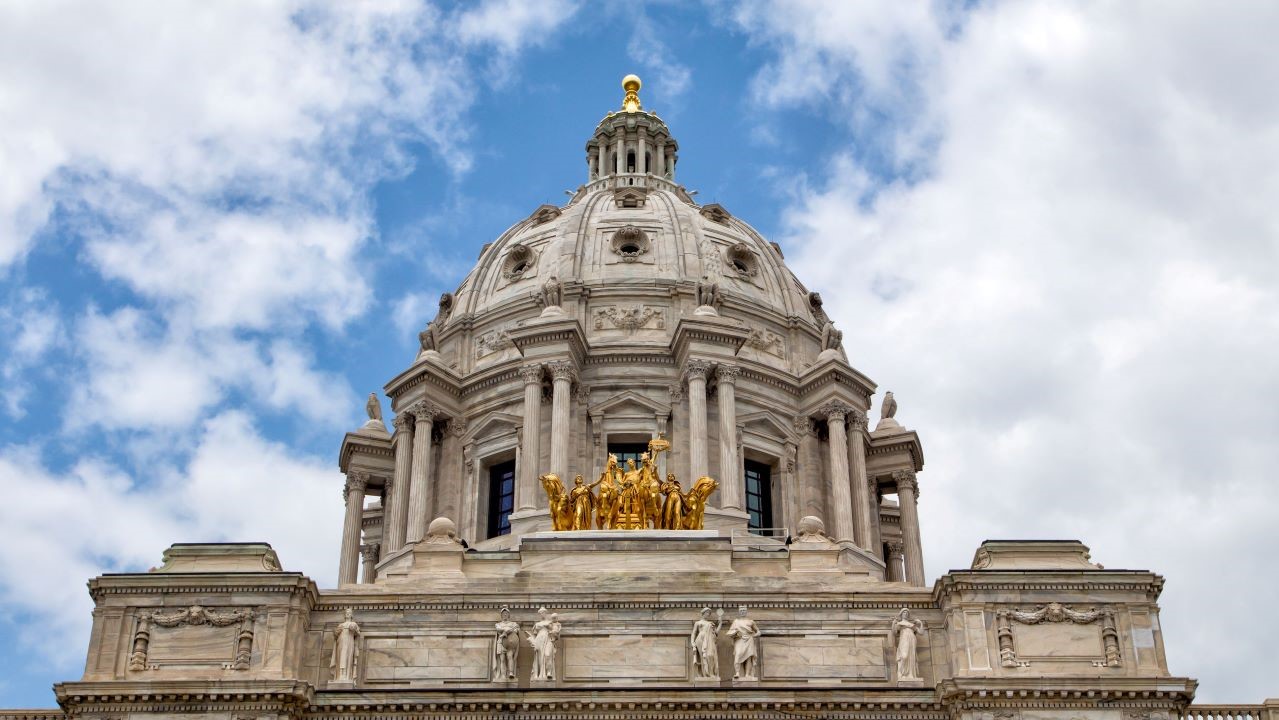
On February 7, 2023, Governor Tim Walz signed Minnesota’s landmark 100% bill, committing Minnesota to achieving 100% of our electricity needs from carbon-free sources by 2040. This legislation was a monumental achievement years in the making, and places Minnesota squarely among the nation’s leaders in tackling the unprecedented threat of climate change.
And it turns out that Minnesota was just getting started.
As the 2023 session of the Minnesota Legislature enters its final days, key agreements have been reached under the leadership Climate and Energy Committee Chairs Sen. Nick Frentz and Rep. Patty Acomb on a wide range of provisions that will help fully deliver on the promise of the session’s early days—tackling emissions from all sectors of the economy and positioning Minnesota to maximize the historic potential of new Federal funding from the Inflation Reduction Act (IRA) and the Infrastructure Investment and Jobs Act.
Fresh Energy was engaged at every step of the way, working in close partnership with our elected officials and a wide range of stakeholders and partners to secure a suite of strategic forward-looking investments and sound policy outcomes. In all, 14 different Fresh Energy staff members contributed oral or written testimony 86 times throughout the session as lawmakers considered an incredible range of proposals to address climate change and firmly establish Minnesota as a key leader in America’s clean economy of the future.
Without question, 2023 will be remembered as the most impactful climate session in Minnesota history – so far! While there is not adequate space here to name everything, here are a few of our favorite provisions from this session:
Flagship Wins: 100 Percent Clean Electricity and State Competitiveness Fund
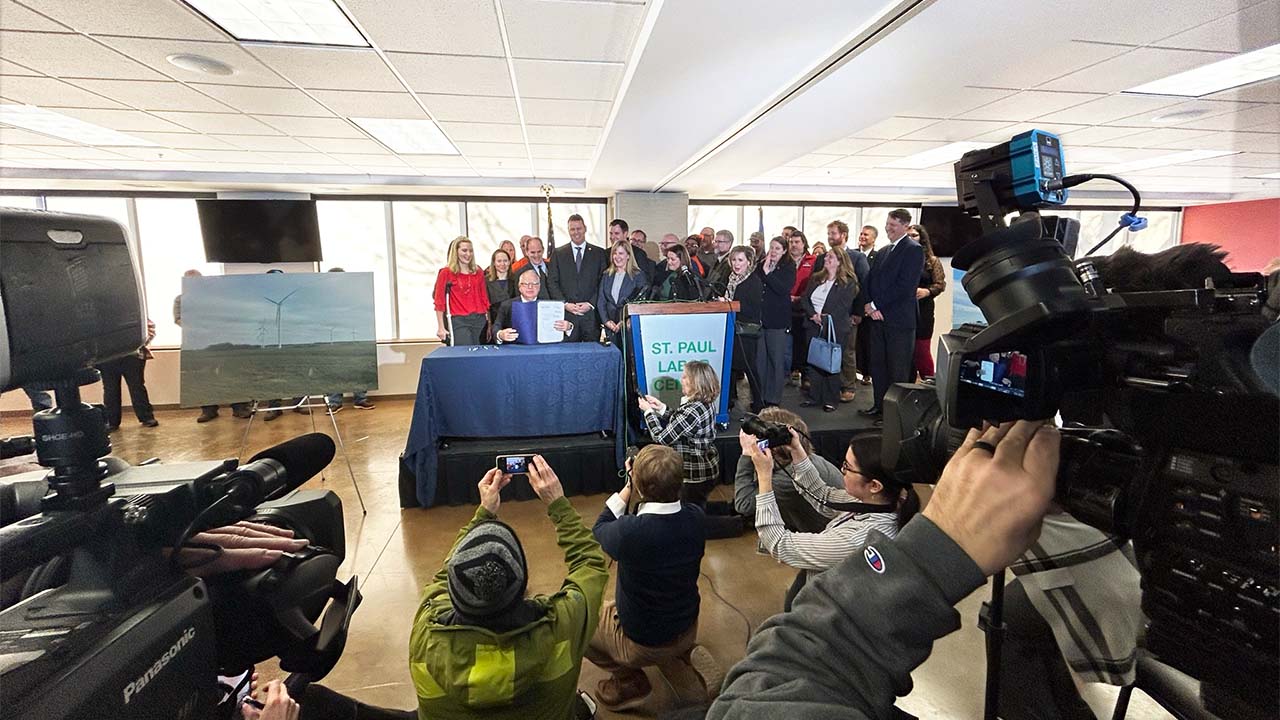
Minnesota’s new 100% clean electricity law commits all utilities to provide Minnesota customers with 100% carbon-free electricity by 2040, with compliance benchmarks every five years. As Fresh Energy’s Executive Director Michael Noble said when Governor Walz signed this historic bill, “This landmark achievement by Governor Tim Walz and the Minnesota Legislature will benefit Minnesotans for years to come across our economy, environment, communities, and beyond. This bill is just the beginning…”
This historic win set the stage for major climate investments to follow, highlighted by the creation of Minnesota’s State Competitiveness Fund, a new program to ensure that Minnesota is well-positioned to secure its fair share of unprecedented Federal funding for climate and clean energy purposes. Governor Walz signed this new program into law in April with $115 million in initial funding—led by authors Rep. Acomb and Sen. Frentz—and the Legislature has followed up with a second allocation of funding in the final week of the session, bringing the total amount set aside for the Competitiveness Fund to $190 million.
Historic funding for climate
On their own, the 100 percent bill and/or State Competitiveness Fund would make for an outstanding and historically productive legislative session on climate, but lawmakers have additionally passed an assortment of targeted investments. Some of the highlights include:
Electric panel upgrade grants
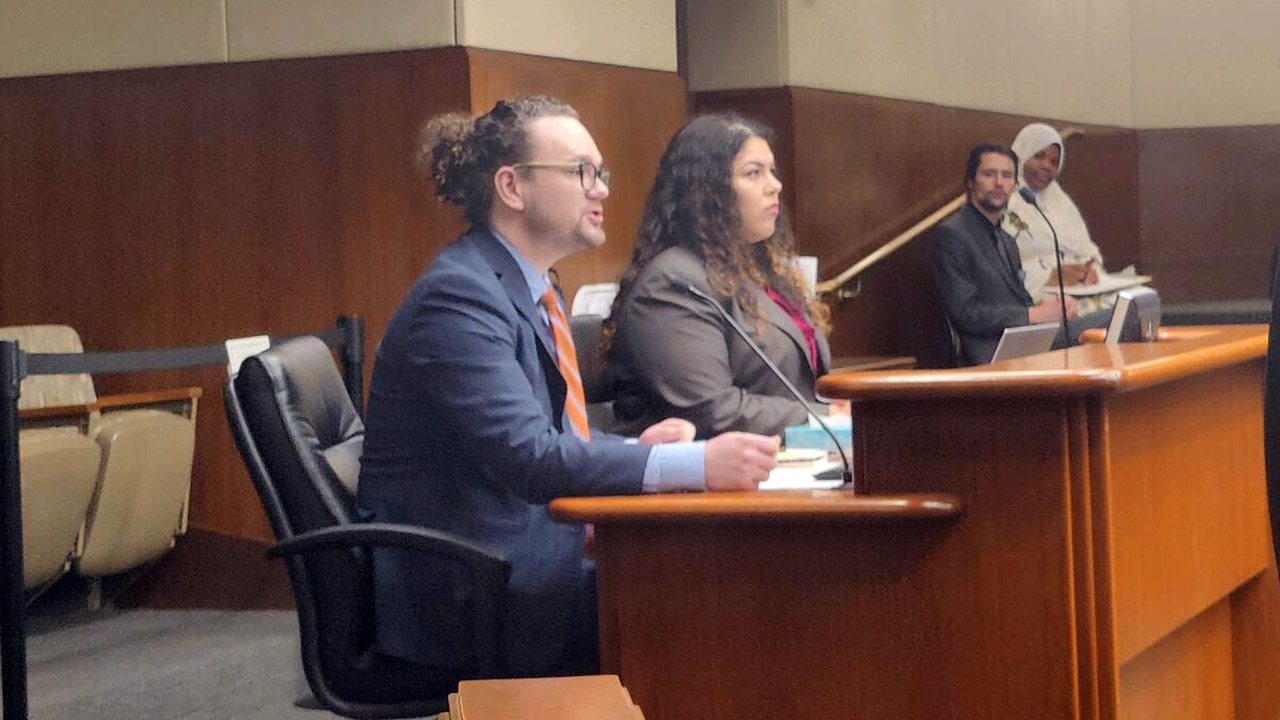
A new electric panel upgrade grant program received an investment of $6.5 million in state resources. A home’s electric panel can be a surprising and often expensive roadblock to home electrification. This program establishes a grant for panel upgrades in residential properties. Empowering low- and middle-income households to make these needed updates, the program covers up to 100% of upgrade costs for income-qualifying households. Multifamily buildings are also eligible. This critical investment ensures that no one is left behind in the electrification transition. Fresh Energy was grateful to work with Rep. Hollins and Sen. Xiong, who championed this initiative.
Electric Vehicle Infrastructure and Incentives
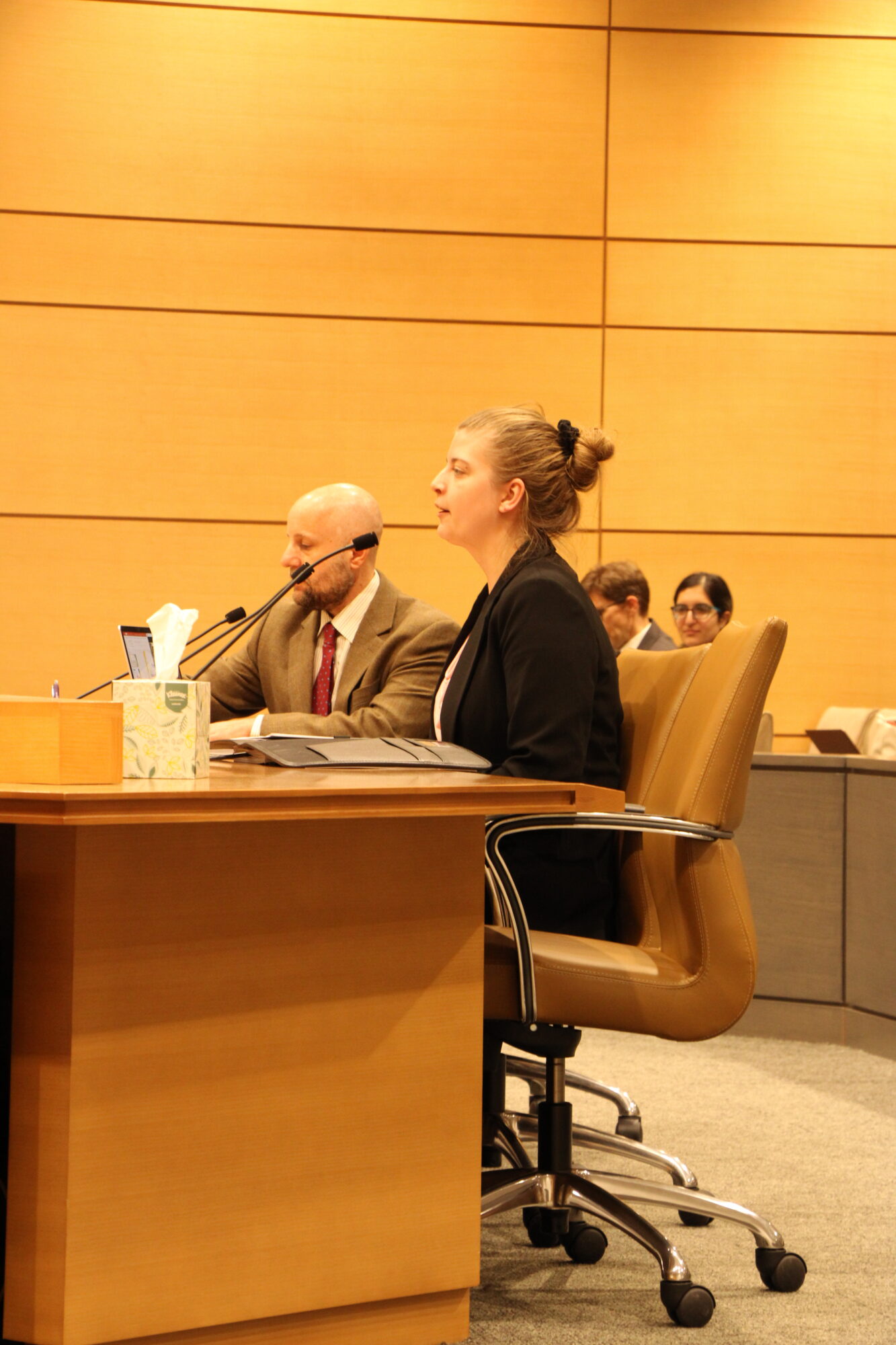
With transportation emissions now the largest contributor to greenhouse gas (GHG) emissions in the state, we advocated for investment in electric vehicle (EV) infrastructure and incentives. Over $13 million was invested in the National Electric Vehicle Infrastructure program which will match Federal funds to establish a fast-charging EV network across the state. To support consumers, Rep. Stephenson and Sen. Mitchell authored bills to create an EV rebate program for purchases of new and used EVs. Rebates of $2,500 will be available for new EVs with a suggested retail value below $55,000. Lessees and used EV purchases (with a purchase price not to exceed $25,000) will be eligible for a $600 rebate. Rebates will be available at the point of sale, reducing the purchase price. Additionally, dealership grants were established to ensure dealers are trained and equipped to match consumer demand for EVs. And finally, kids in our state will benefit from the $13 million investment in electric school buses, which could bring additional federal matching funds to Minnesota school districts to transition their fleets, thanks to bill authors Rep. Hanson and Sen. Port.
Accelerated Commercial Energy Codes
An accelerated approach to updating the commercial building energy code puts new commercial buildings in Minnesota on a path to achieve an eighty percent improvement in annual net energy consumption by 2036. This practical and substantive approach to reducing GHG emissions from the building sector utilizes Minnesota’s established process for reviewing and updating the commercial energy code under the oversight of the Construction Codes Advisory Council. Additionally, it sets an achievable and measurable benchmark for evaluating progress and success. Finally, the clear 2036 end target preserves flexibility for determining appropriate incremental steps, in concert with industry stakeholders. Fresh Energy worked with authors Rep. Kraft and Sen. Port on this important bill.
Frontline Communities Protection Act
Fresh Energy is a member of the Frontline Communities Coalition that successfully advanced The Frontline Communities Protection Act. Many Minnesota communities are already overburdened by decades of existing pollution. This new policy ensures the state considers existing cumulative impacts from environmental pollution in locations where new projects are being proposed for environmental review and permitting. This bill has significant equity and justice impacts that would give some communities stronger regulatory protections against pollution. While the current policy will be limited to the seven-county metro area and the cities of Rochester and Duluth, Tribal Nations will have the opportunity to opt in. Rep. Fue Lee and Sen. Champion were chief authors on this bill, with several co-authors also signed on.
Buy Clean Buy Fair Minnesota Act
With passage of the Buy Clean Buy Fair Minnesota Act, Minnesota will lead by example by procuring products that have significantly lower GHG emissions impacts than traditional building materials. This policy uses a rigorous, data-driven approach for quantifying the lifecycle emissions of steel, concrete, asphalt, and rebar in establishing a procurement standard for state construction projects. The legislation, authored by Rep. Berg and Sen. Murphy, goes further by establishing a grant program to help Minnesota manufacturers in this transition to ensure they can compete for state construction bids requiring materials with lower embodied carbon.
Green fertilizer
Nitrogen fertilizer production is enormously carbon-intensive and is produced primarily using fossil gas. Innovative strategies that utilize green hydrogen from wind and solar energy to produce vastly less carbon-intensive green fertilizer are emerging. Fresh Energy sees significant opportunities in establishing Minnesota as a regional and federal model for producing green fertilizer locally, reducing our dependence on fossil-generated fertilizer. Beyond achieving crucial reductions in greenhouse gas emissions from the agricultural sector, leveraging a Minnesota model for local green fertilizer production also stands to grow rural economic opportunities, jobs, and tax revenue. The Legislature approved $7 million in funding for green fertilizer projects, under the leadership of bill authors Sen. Putnam and Rep. Koegel.
Solar Interconnection
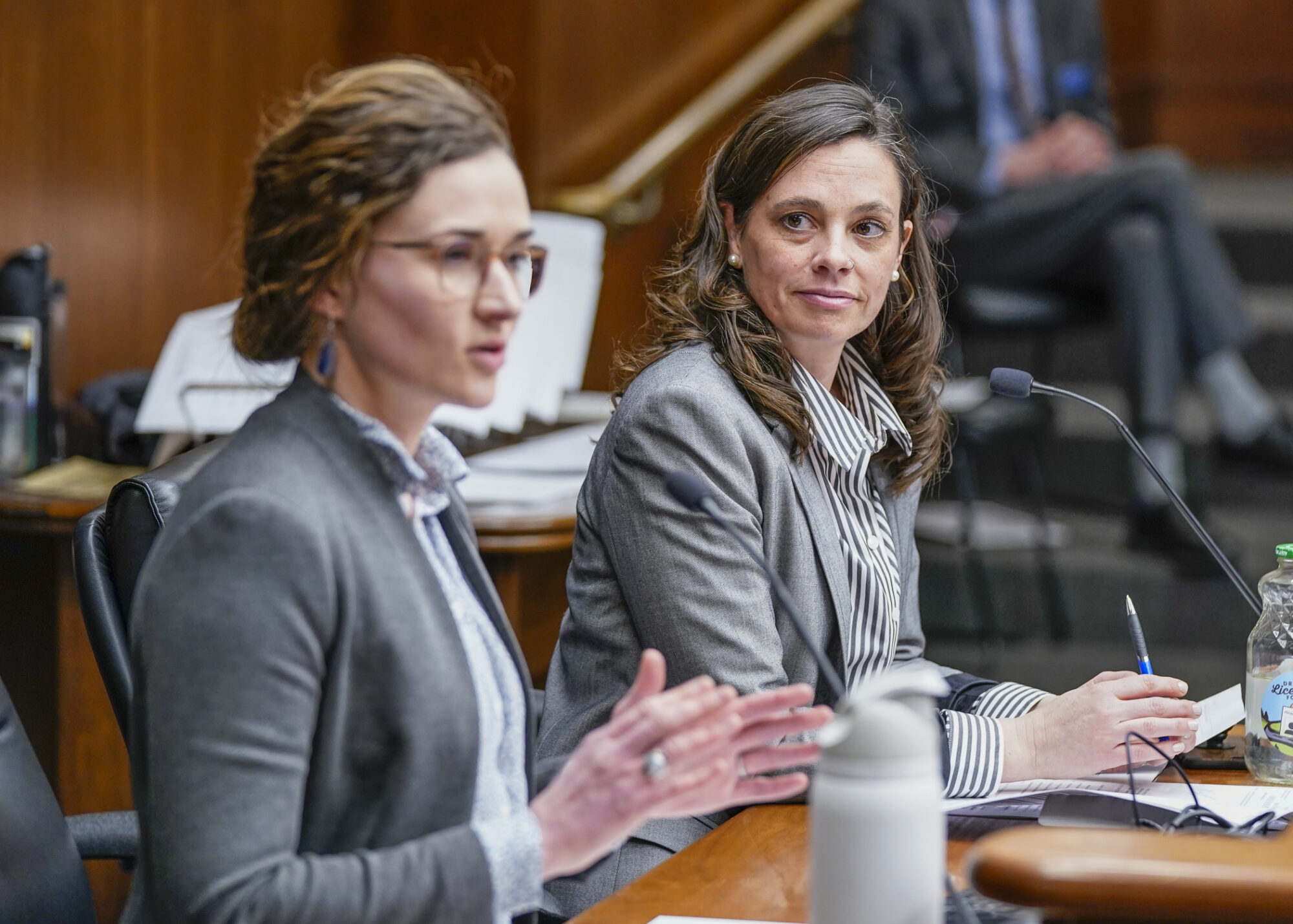
Interconnection is the process by which electricity-generating technology connects to the grid, and it determines how much new grid infrastructure is required to connect a project. It is a highly technical process, but one with huge influence over the pace of the clean energy transition. Xcel customers who want to install solar on their home or land have in recent years been facing long wait times and increasing and unpredictable interconnection costs. This package includes $10.25 million to make infrastructure investments in the areas of Xcel’s grid where this problem is most acute, requires that small projects are reviewed more rapidly, and requires that Xcel pursue new and innovative strategies that improve efficiency of the grid and reduce costs for customers hoping to install solar or batteries. A portion of this funding will support Xcel’s cost-sharing program for small projects, which provides free grid upgrades for low-income solar customers. Fresh Energy was excited to work with Rep. Pursell and Sen. Mitchell on this bill and appreciates their great work shepherding it through.
Minnesota Climate Innovation Finance Authority (MNCIFA)
MNCIFA builds on the great work already being done in the clean energy and energy conservation space – ensuring that existing programs are able to expand their reach to historically underserved areas and untapped markets, and providing new financial and technical assistance tools that make more clean energy projects possible for Minnesota. This new, publicly-accountable financing authority will help leverage state dollars to accelerate the adoption of proven, clean energy technology—accomplishing more than they could alone through private capital. It will also help Minnesota attract federal funds, such as the $20 billion available through the Greenhouse Gas Reduction Fund portion of the IRA. Sen. Xiong and Rep. Greenman led the charge on this initiative.
These historic accomplishments are thanks to strong partnerships, stakeholders, and Minnesotans who plugged in and encouraged their lawmakers to prioritize action on climate. We know that there is much more work to be done, but the 2023 legislative session has laid the groundwork for economy-wide decarbonization and delivered the most impactful climate session in state history.

